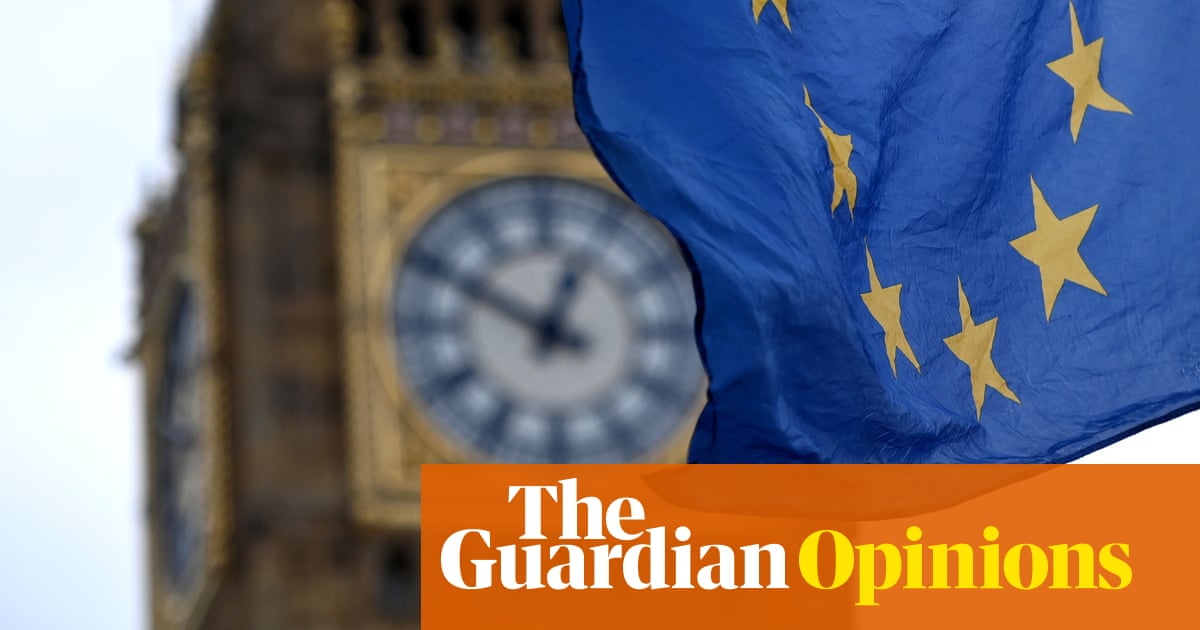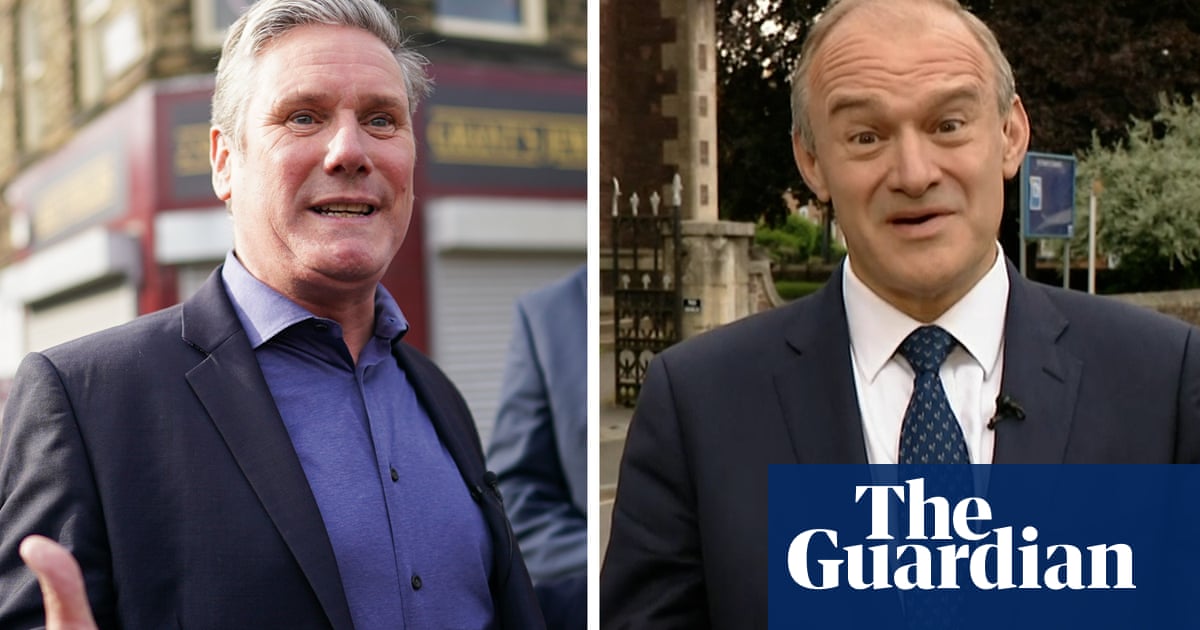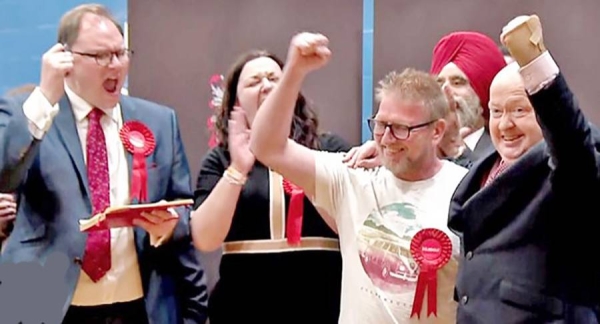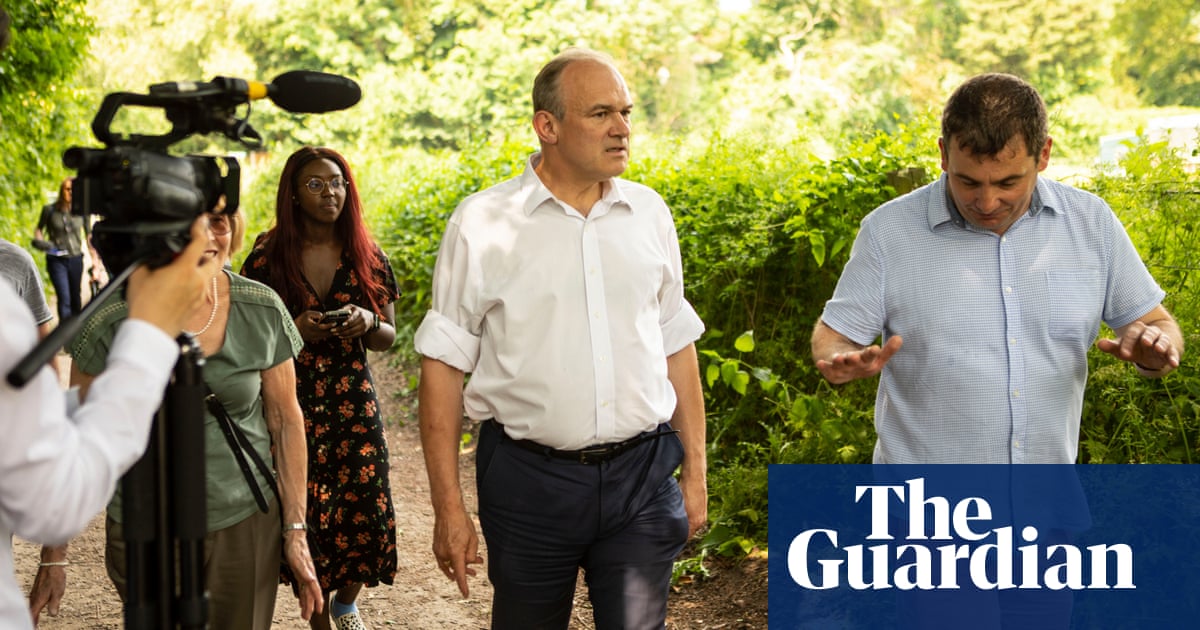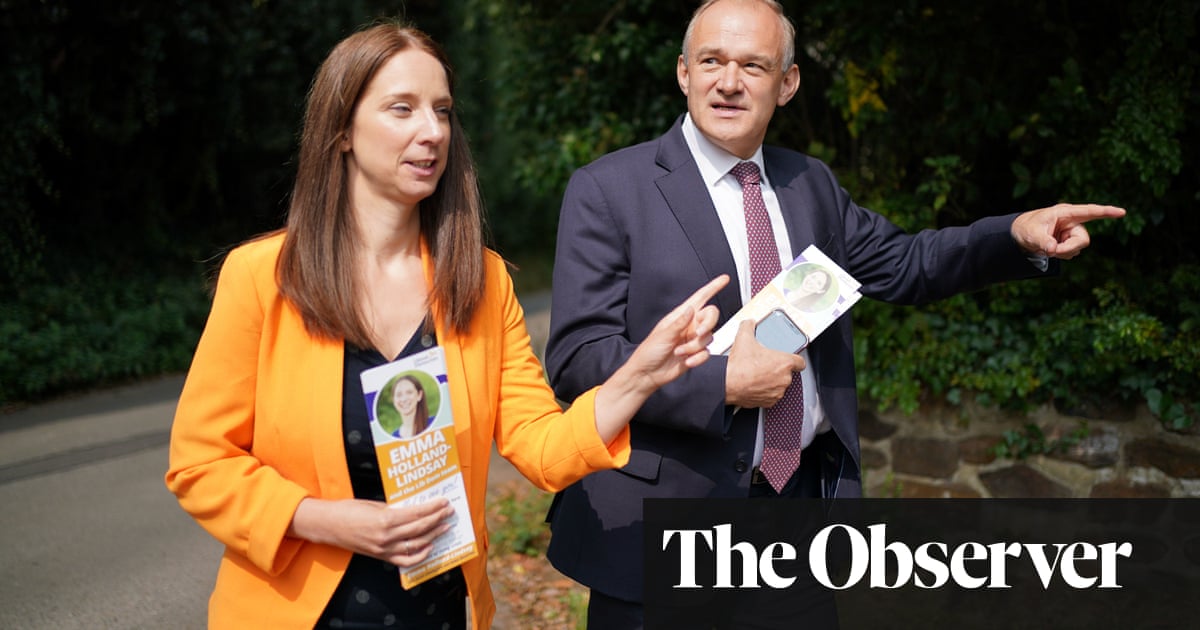
We’re now closing this live blog. Here’s the full report on Angela Rayner’s comments:
And for more Covid news from around the world you can follow our global coronavirus blog:
Evening summary
Here is a quick recap of some of the main developments from today:
The government has scrapped the “golden visa” system that allows wealthy foreign investors a fast track to living in the UK, amid concerns over links with Russia. The tier one investor visa route will be shut to all new applicants from all nationalities with immediate effect, the Home Office said, adding that some cases had “given rise to security concerns, including people acquiring their wealth illegitimately and being associated with wider corruption”. More here.
Labour’s deputy leader, Angela Rayner, said counter-terrorism police should “shoot first” and “ask questions second”, as the party upped its attacks on the Tories’ record on crime rates. Rayner said she supported a more hardline approach to policing, saying she wanted police to “beat down the doors” of criminals and “sort them out”, as Labour continues to set out a tougher approach to law and order.
The UK accused Russia of orchestrating “false flag” attacks in Ukraine as a pretext for an invasion. The claims by Boris Johnson and the foreign secretary, Liz Truss, came as tensions continued to mount between Russian-backed separatists and state forces in east Ukraine, with shells hitting a nursery school. Truss said reports alleging “abnormal military activity” by Ukraine in the eastern Donbas region were a “blatant” attempt by the Kremlin to fabricate a reason for an invasion. The prime minister claimed there was a “false flag operation designed to discredit the Ukrainians” and “we fear very much that that is a thing we will see more of over the next few days”. Western allies fear Russia will carry out or support attacks in Ukraine that it will then falsely blame on the Kyiv government in order to justify an invasion. More live updates here.
Russia’s claim to be withdrawing troops from the border with Ukraine seems to be a “disinformation campaign” and the troops are instead making their final preparations to invade, the UK armed forces minister said. James Heappey said Moscow was continuing to deploy thousands more soldiers to the region and building bridges across rivers that could be used as part of a military incursion into Ukraine. More here.
Scotland Yard was forced to admit it was “unacceptable” for one of its official Twitter accounts to apparently criticise the mayor of London, Sadiq Khan, leading him to accuse the force of amplifying misleading information. Khan tackled the suggestion – made in a now-deleted tweet by the verified “Met Police Taskforce” – that he did not understand the rules for disciplining officers. It came as the London mayor said he would not support the choice of the home secretary, Priti Patel, to replace the Met commissioner, Cressida Dick, unless whoever was chosen understood “the importance of addressing these deep cultural issues” within the force, such as racism, sexism and bullying. More here.
A minister hinted that Boris Johnson is likely to announce an end to the provision of free lateral flow tests when he outlines his “living with Covid” plan next week. James Heappey, the armed forces minister, said it was time to reconsider whether some pandemic measures should remain in place as he argued Britons need to “change behaviours” in the face of future Covid variants potentially being less threatening. There have also been reports that as part of the prime minister’s blueprint for the future, the UK government will no longer provide free lateral flow tests to the public. Asked on Sky News whether the offer of free quick-result tests to allow people to check whether they are positive for coronavirus would be “taken away”, Heappey said: “I think that is the direction of travel but the prime minister will shortly announce his conclusions on that.”
A new attempt will be launched next week to force publication of the full report on whether No 10 parties broke Covid laws, with Conservative MPs urged to support the move to ensure there are “no more cover-ups and no more lies”. While more questionnaires were sent out by Scotland Yard to people who attended a dozen gatherings under investigation, a “humble address” motion was tabled in the House of Commons by the Liberal Democrats. If passed, ministers would be forced to release a specific set of documents within two days of the Met concluding its investigation. A date has yet to be set for the vote, but it could come on the next opposition day allocated to the Lib Dems. The papers being demanded include an unredacted version of Sue Gray’s report, all accompanying evidence collected by the Cabinet Office, and a list of Downing Street staff issued with a fixed penalty notice. More here.
Labour will fight only a “minimal campaign” in most of the Lib Dems’ top 30 target seats at the next general election, in “an informal Lib-Lab plan to topple the Conservatives”, the FT reported. Keir Starmer has reportedly told colleagues that Labour must “ruthlessly focus” resources on its target seats in the vote, which must be held by 2024, leaving the Lib Dems as the main challengers in some seats.
That’s all from me for today. Thank you so much for reading along. Have a lovely weekend!
We can see through Oliver Dowden’s US-style bluster as a mere distraction from the country’s real problems, writes Jon Allsop for the Guardian today.
Here is an extract:
The UK, of course, has longstanding institutional racism issues, and countless cultural sores of its own. When Dowden told the Heritage Foundation that the government had told schools that it was “illegal to teach the concept of ‘white privilege’ as though it were undisputed fact”, his audience surely heard a clear echo of the US freakout over critical race theory.
In general, America’s culture war discourse is so ingrained that it is impossible to simply uproot it and replant it in Britain, where political life is less structured around hot-button cultural controversies.
Sure, people care about patriotic songs and the union jack, often quite a lot. But these symbols aren’t permanent, inflamed points of contention. (Keir Starmer may be keen to emphasise them, but he seems to see them as a post-Corbyn prerequisite for electability, not a finished political offer in and of themselves.) We have tabloids, but we do not have a Fox News mainlining grievance day and night. GB News looks tinpot in comparison.
Moreover, the cultural schisms that we do have don’t always reinforce each other. Brexit got nasty, but did not map neatly on to existing divisions. (Dowden voted for Remain.) Covid rules, a key driver of the US culture wars, have not been as viciously polarising here. When Dominic Cummings broke lockdown, he tried to fight his way out of accountability, Trump-style, but was met with a wall of public fury. Ditto Boris Johnson. As of a year ago, nearly 60% of Britons didn’t know what “woke” meant. A roughly contemporaneous poll found the equivalent US figure to be around 30%.
It’s easy to oversimplify any transatlantic comparison, and it’s facile to say that culture wars are always a distraction from weightier, kitchen-table issues – culture matters. But the relentless, totalising focus on grievance surely is a distraction. In keeping with their “with or against us” tone, the woke wars, if they are to be effective electorally, need to be an all-or-nothing political strategy. Many US politicians are all in. Most Tories are not. And it’s far from clear that their voters would reward them if they were.
You can read the full piece here: The British public won’t swallow the Tories’ half-baked ‘war on woke’
The EU must drop the pretence that the Northern Ireland protocol is designed to protect the peace process, the DUP leader has said.
Sir Jeffrey Donaldson said unionism was “rapidly losing faith” that a negotiated solution to issues with the protocol could be achieved through the ongoing negotiations between the EU and UK.
The DUP leader, who has repeatedly called on the UK government to suspend the trading arrangements by triggering the article 16 mechanism, was speaking after a virtual meeting with the European Commission vice-president Maroš Šefčovič.
Earlier this month Donaldson pulled the DUP first minister, Paul Givan, out of the Stormont executive in protest at the protocol – a move that removed the power-sharing administration’s ability to make any significant decisions.
Šefčovič has been holding talks with the main Stormont leaders before next week’s meeting of the EU/UK joint committee on implementing the protocol.
Four of the five main Stormont parties also held talks with the Irish foreign affairs minister, Simon Coveney, on Thursday. Donaldson could not meet Coveney in person in Belfast due to travel logistics but is expected to speak with him in the coming days.
Donaldson, who last year stopped his ministers participating in cross-border political meetings as part of his campaign against the protocol, said it was the “greatest threat to progress and prosperity in Northern Ireland of our generation”. He added:
The EU can no longer keep up the pretence that the protocol was about protecting peace.
The Irish Sea border does not have the support of a single unionist elected representative. It is divisive and undemocratic. It trashes the cross-community consent principle. The absence of a functioning executive or north-south structures demonstrates that the protocol is an unrivalled danger to fairness and progress in Northern Ireland.
Unionism is rapidly losing faith that a negotiated solution is possible. It is time for the government to take actions which restores fairness and reinstates Northern Ireland’s access to the UK internal market. This is the only way to build a better future for everyone in Northern Ireland.
Sinn Féin’s Stormont leader, Michelle O’Neill, who was automatically removed as deputy first minister when Givan quit, held talks with Šefčovič and Coveney on Thursday.
She said the majority of people in Northern Ireland did not support the triggering of article 16.
There’s no desire here on the part of the wider society around the triggering of article 16.
O’Neill said her engagements with Coveney and Šefčovič were “very timely” in advance of next week’s joint committee meeting, adding:
We hope that there are solutions to be found, if that’s the case remains to be seen.
UK scraps ‘golden visa’ scheme for wealthy foreign investors amid Russia concerns
The Home Office has confirmed it has scrapped the “golden visa” system for wealthy foreign investors amid security concerns, PA reports.
The tier one investor visa route will be shut to all new applicants from all nationalities with “immediate effect”, the department said, adding that some cases had “given rise to security concerns, including people acquiring their wealth illegitimately and being associated with wider corruption”.
Launched in 2008, the scheme allows people with at least £2m in investment funds and a UK bank account to apply for a tier one investor visa.
The scheme has now been axed over concerns about how the system was being taken advantage of, and against a backdrop of souring relations with Moscow given its military buildup on the border with Ukraine.
The home secretary, Priti Patel, said:
I have zero tolerance for abuse of our immigration system. Under my new plan for immigration, I want to ensure the British people have confidence in the system, including stopping corrupt elites who threaten our national security and push dirty money around our cities.
Closing this route is just the start of our renewed crackdown on fraud and illicit finance. We will be publishing a fraud action plan, while the forthcoming economic crime bill will crack down on people abusing our financial institutions and better protect the taxpayer.
The armed forces minister, James Heappey, had suggested the change was being made in part because of the Kremlin’s buildup of troops near Ukraine.
He told BBC Radio 4’s Today programme on Thursday morning:
Changes were made to that in 2015 and 2019 to make sure that the checks were ever more stringent. But absolutely, as we enter into what could be a generation or longer of quite acute competition with Russia, all of the things that have become normal in Anglo-Russian relations over the last 30 years will be up for review. And that is, I think, what the home secretary and her team are looking at at the moment.
At least 700 such visas have been issued to Russian millionaires in the first eight years of the scheme, according to the Times (paywall).
The controversial issue had been due to come to a head in several weeks anyway, as an amendment tabled to the nationality and borders bill during its report stage in the House of Lords would, if passed, have required the visa route to be suspended.
My colleague Aubrey Allegretti has more on this story here: UK ministers plan to scrap ‘golden visa’ scheme amid Russia concerns
The business secretary, Kwasi Kwarteng, has been accused of allowing fake news to flourish after refusing to debunk false claims that civil servants in his department demanded the removal of a portrait of the Queen.
Dave Penman, the head of the FDA senior civil servants union, has claimed that Kwarteng is damaging morale within the Department for Business, Energy and Industrial Strategy after ignoring requests to publicly correct reports that staff replaced the portrait with a smaller picture of the monarch.
The row comes amid deepening anger among civil servants that they are being unfairly and repeatedly vilified in anonymous quotes from ministerial aides.
You can read the story here: Kwarteng accused of letting fake news flourish over Queen portrait
Counter-terrorism police should "shoot first and ask questions later", says Angela Rayner
Labour’s deputy leader, Angela Rayner, has said counter-terrorism police should “shoot first” and “ask questions second”, as the party ups its attacks on the Tories’ record on crime rates.
Rayner said she supported a more hardline approach to policing, saying she wanted police to “beat down the doors” of criminals and “sort them out”, as Labour continues to set out a tougher approach to law and order.
Speaking to Matt Forde’s Political Party podcast, Rayner said she was on a “different page” to the former leader Jeremy Corbyn’s approach to crime, adding:
On things like law and order I am quite hardline. I am like, shoot your terrorists and ask questions second.
Taken aback by the live audience’s reaction, she added:
Sorry, is that the most controversial thing I’ve ever said?
Rayner went on to say she wanted police officers to take a more active role in investigating burglaries, as well as “antagonising” thugs who make life difficult for their neighbours.
On law and order, I think if you are being terrorised by the local thug, I want a copper to come and sort them out.
You should be hardline on things like that. It’s not just: ‘Oh, you’ve been burgled, here is a crime number.’
I want you to beat down the door of the criminals and sort them out and antagonise them. That’s what I say to my local police … three o’clock in the morning and antagonise them.
Rayner said she had been “plagued by antisocial behaviour” when she was growing up, adding:
It’s the usual suspects … I want the police to annoy the hell out of them until they realise disrupting lives is not OK. I am quite hardline on that.
Her comments displeased many on the Corbynista wing of the party, including the former shadow home secretary Diane Abbott.
The Lib Dems’ home affairs spokesperson, Alistair Carmichael, said: “I suspect that Rayner may not have meant this entirely literally.”
Last month, an IpsosMori poll for the Standard showed that Keir Starmer’s party was now trusted more on law and order, after weeks of sleaze allegations hitting the government over partygate.
A Tory MP who leads a group that campaigns against the government’s net zero measures has recruited two members of staff from a controversial organisation that questions climate science.
After the Guardian revealed links between members of the Net Zero Scrutiny Group, run by the MP Craig Mackinlay, and the Global Warming Policy Foundation (GWPF), further ties between the two organisations have been found.
Politico reported that Mackinlay, an outspoken critic of the government’s net zero policies, has taken on Harry Wilkinson, the head of policy at GWPF’s campaigning arm, Net Zero Watch, in addition to Ruth Lea, a former trustee of the arm, to work in his parliamentary office.
Wilkinson is a critic of consensus on global heating, and has tweeted: “The ‘climate crisis’ is a religious belief, nothing to do with science.” He previously worked for Nigel Lawson, who founded the GWPF and makes claims such as: “I think that climate change is not a threat, it is happening very gently at a fraction of a degree per decade which is something we can perfectly well live with.”
Wilkinson celebrated the news of his appointment, tweeting: “After 5 years of working as a Researcher for Lord Lawson, I am pleased to be able to take a position in Craig Mackinlay’s office. I look forward to supporting his work alongside continuing my role with Net Zero Watch.”
Green campaigners have frequently called the GWPF a leading source of climate change denial, as it has questioned climate research by top scientists, called for green measures to be halted, and claimed the rising level of carbon dioxide in the atmosphere has many benefits.
More on this story here: Staff from climate denial group recruited by Tory MP behind net zero attacks
Johnson fears Russian "false flag" action to discredit Ukraine ahead of invasion
Russia has been accused by the UK of orchestrating “false flag” attacks in Ukraine as a pretext for an invasion, PA reports.
The claims by prime minister Boris Johnson and foreign secretary Liz Truss came as tensions continued to mount between Russian-backed separatists and state forces in east Ukraine, with shells hitting a nursery school.
Truss said reports alleging “abnormal military activity” by Ukraine in the eastern Donbas region were a “blatant” attempt by the Kremlin to fabricate a reason for an invasion.
The prime minister claimed there was a “false flag operation designed to discredit the Ukrainians” and “we fear very much that that is a thing we will see more of over the next few days”.
Western allies fear Russia will carry out or support attacks in Ukraine which it will then falsely blame on the Kyiv government in order to justify an invasion.
Despite Russian claims to be pulling units back to base following the conclusion of military exercises, the UK and US have claimed that thousands more troops have been deployed, along with supporting assets such as field hospitals and new bridges.
Johnson, speaking at RAF Waddington in Lincolnshire, said:
The picture is continuing to be very grim. Today, as I’m sure you’ve already picked up, a kindergarten was shelled in what we are taking to be, well, we know, was a false flag operation designed to discredit the Ukrainians, designed to create a pretext, a spurious provocation for Russian action. We fear very much that that is the kind of thing we will see more of over the next few days.
Truss, who is in Ukraine, said she was very concerned about the exchanges of fire in Donbas and the continued build-up of Russian troops.
Separatist authorities in the Luhansk region claimed there had been an increase in Ukrainian shelling along the tense line of contact, describing it as a “large-scale provocation” and that they then returned fire.
The Kyiv government disputed the claim, saying separatists had shelled its forces but they did not fire back a nursery school building in Stanytsia Luhanska was hit, wounding two civilians, according to the Ukrainian military.
Ukrainian president Volodymyr Zelenskyy said “the shelling of a kindergarten in Stanytsia Luhanska by pro-Russian forces is a big provocation”.
Truss, who has warned that Russian president Vladimir Putin could mount a “false flag” operation to justify an invasion, said:
Reports of alleged abnormal military activity by Ukraine in Donbas are a blatant attempt by the Russian government to fabricate pretexts for invasion. This is straight out of the Kremlin playbook.
Truss said she was “very concerned about reports today of increased Russian aggression: over 7,000 extra troops near the Ukraine border and an attack by pro-Russian troops on a kindergarten in Ukraine”.
She urged Russia to withdraw its troops as there was “still time for diplomacy and de-escalation”.
Ireland’s foreign affairs minister has downplayed the prospect of a major breakthrough in negotiations on Brexit’s Northern Ireland protocol next week, PA Media reports.
Ahead of a meeting of the EU/UK joint committee on the implementation of the Irish Sea trading arrangements on Monday, Simon Coveney advised against “unrealistic” expectations about what might emerge.
He also insisted that the Irish government was not a bystander to the ongoing political crisis at Stormont that has flared amid ongoing unionist anger at the protocol.
But he did express concern about the long-term future of the power-sharing institutions after the recent collapse of the coalition administration.
He was commenting on the uncertainty over whether the political will would exist to reconstitute an executive following May’s assembly election.
Coveney travelled to Belfast on Thursday to meet political leaders two weeks after the Democratic Unionist party withdrew the first minister, Paul Givan, from the executive in protest at the Irish Sea “border” with the rest of the UK.
Asked about the prospects of significant progress on the disputed issuesbetween the EU and UK next week, Coveney said:
I think it’s important not to be unrealistic in terms of the expectations that may come from that meeting. I think the likely scenario is that there probably will be a joint statement from both sides in terms of outlining the issues that they want to try and address together. But we should use that as a staging point for progress, as opposed to a reminder of how far apart the two sides continue to be.
The minister had meetings scheduled with Sinn Féin, the SDLP, the UUP and Alliance party on Thursday.
The DUP leader, Sir Jeffrey Donaldson, was travelling on Thursday and a meeting between himself and Coveney was expected in the coming days.
Asked why it had taken two weeks for him to go to Belfast to meet politicians, Coveney said:
I can assure you we’re not bystanders and that’s why I’m here, to meet in person with all the parties that are available to meet. But we have been talking to parties in the meantime, as you would expect, and, of course, I speak to the British government all the time, in particular Liz Truss, and I speak to Maroš Šefčovič [European Commission vice-president] a number of times every week. So we are keenly involved in actually trying to find compromise positions and trying to find a way of reassuring people that the Northern Ireland protocol can be implemented in a way that everybody can accept.
And, of course, we’re watching closely in terms of the instability in terms of Northern Ireland politics as we lead into assembly elections now in May. And, of course, thinking about post those elections, how the two governments could work together with all of the parties in Northern Ireland to bring about political stability here.
Asked if he was concerned about Stormont’s long-term future, Coveney said:
I think everybody should be concerned. You know, we’ve had a period of tension and polarisation, much of that links to Brexit and the Northern Ireland protocol issues, I accept that.
But we move into an election cycle now and I think all of us have to try to think ahead in terms of the consequences of that election. We have to respect democracy and what people choose in terms of the parties and the make-up of a future assembly.
But we’ve also got to ensure that there is sufficient trust rebuilt to ensure that both governments can work together with parties in Northern Ireland to maintain stability and the institutions that are so valuable to people’s well-being in Northern Ireland.
Coveney said both the UK and EU acknowledged the consequences for community relations in Northern Ireland of the ongoing failure to resolve the dispute over the protocol. But he pointed to a recent opinion poll as evidence that the protocol was not a major issue of concern for most people in the region.
Both the British government and the European Union, I think, are very conscious of the fact that the inability so far to settle some of the outstanding issues around how the protocol is implemented is having a very polarising impact on politics in Northern Ireland.
I think we were also reminded in the last few days that not everybody on the streets of Northern Ireland are talking about the protocol in the context of these [Assembly] elections. In fact, less than 7% of people polled in Northern Ireland have said that the protocol is the first issue for them in terms of how they’ll vote. So you know, I think we need to put this into perspective.
The protocol and issues around it are important and politicians like me and others have to find solutions and landing zones that are based on compromise and understanding each other’s perspectives, but also around a realistic and honest assessment of what Brexit means and the choices that flow from that.
Coveney added:
My job is to try to find solutions, to try to be optimistic about what’s possible and to try and work through issues with patience and with respect for everybody and their perspectives, so that we can try to find a basis for agreement moving forward, and I think the European Union is also trying to bring that patience and understanding.








